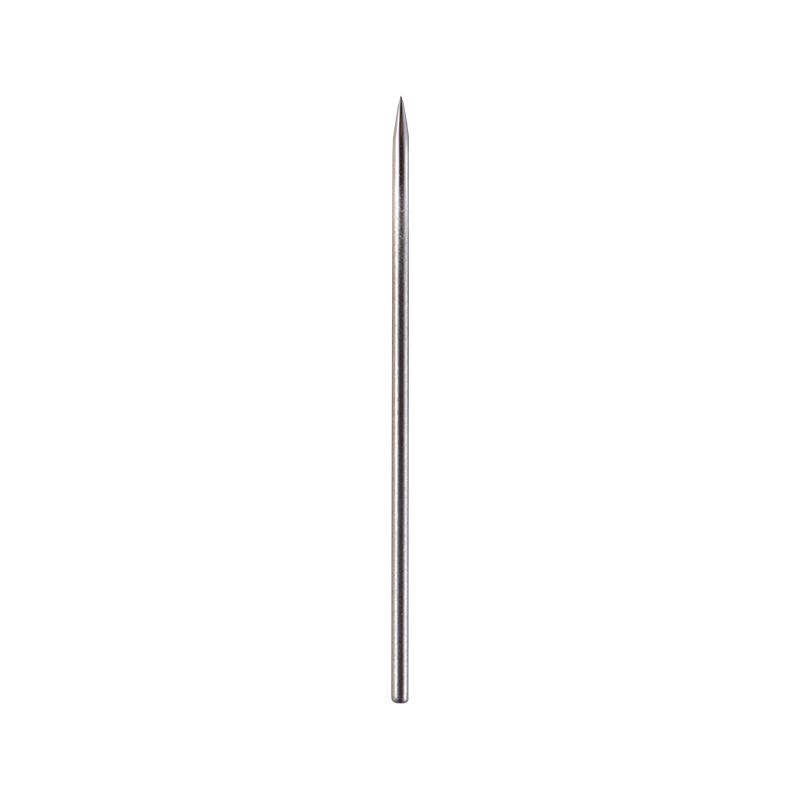+86-0577-86858771
The medical needle industry plays a crucial role in healthcare, enabling a wide range of diagnostic, therapeutic, and veterinary applications. Over recent years, the sector has experienced significant shifts driven by advances in technology, evolving safety standards, and growing demand for specialized needles. Among the key product categories, disposable veterinary needles, needles medical supplies, and sterile injection needles stand out as focal points where innovation and market trends converge.

Disposable veterinary needles have become increasingly important as the demand for animal healthcare rises. These needles are designed to meet the unique requirements of veterinary medicine, often emphasizing safety, hygiene, and convenience. With growing awareness of zoonotic diseases and the need to ensure animal welfare, veterinary practitioners seek needles that less cross-contamination risks. The disposable nature of these needles means that each injection is performed with a fresh, sterile tool, reducing the chance of infection for both animals and handlers. Furthermore, veterinary needles come in various sizes and gauges tailored for different animal species and types of injections, accommodating everything from small pets to large livestock.
A significant trend influencing disposable veterinary needles is the move towards ergonomic and user-friendly designs. Veterinarians often work in challenging environments and require tools that are easy to handle and reliable. Improvements in needle shaft strength and bevel geometry contribute to smoother penetration, reducing discomfort for animals and allowing more precise dosing. Additionally, packaging innovations that allow for quick and sterile access to needles during busy veterinary procedures have gained traction.
In the broader category of needles medical supplies, there has been a consistent focus on quality, safety, and regulatory compliance. Medical needles are integral components in a variety of healthcare settings, including hospitals, clinics, and outpatient care centers. Their use ranges from routine blood draws to complex drug delivery and anesthetic administration. To address these diverse needs, manufacturers continue to refine needle materials, coatings, and structural integrity. For example, the adoption of ultra-thin needle walls enhances patient comfort by reducing pain during injections without compromising strength.
Safety features in needles medical supplies have seen notable developments as well. Needlestick injuries pose a serious risk to healthcare workers, prompting increased use of safety-engineered needles. These designs often incorporate mechanisms such as retractable tips, protective sheaths, or locking systems that prevent accidental needle sticks after use. While these features add complexity to production, they represent an important step in safeguarding medical personnel and maintaining sterile environments.
The market also reflects growing interest in environmentally responsible solutions within needles medical supplies. As single-use needles generate considerable medical waste, some manufacturers and healthcare providers are exploring biodegradable materials or recycling programs. Although the shift toward sustainability is gradual and subject to stringent safety regulations, it signals an awareness of the environmental footprint of medical consumables.
Sterile injection needles remain at the core of the medical needle industry due to their critical role in infection control. Sterility is essential to prevent contamination and transmission of diseases during injections. Advances in sterilization techniques, such as ethylene oxide gas sterilization and gamma radiation, help ensure that needles remain free from microbial presence until the point of use. The packaging of sterile injection needles also plays a pivotal role; airtight, tamper-evident containers preserve sterility and provide confidence to healthcare providers.
Another notable trend in sterile injection needles involves their integration with drug delivery systems and devices. With the rise of self-administered therapies and home healthcare, needles compatible with auto-injectors and pen devices have gained attention. These needle systems focus on ease of use and patient comfort, sometimes featuring thin walls and specialized coatings to reduce insertion force. The development of needles that support precise dosing while maintaining sterility and safety continues to be a priority.
The global medical needle industry is also adapting to the impact of public health events such as pandemics, which have heightened demand for sterile injection needles in mass vaccination campaigns. This surge challenges manufacturers to scale production while maintaining strict quality standards. Supply chain resilience, along with regulatory approvals, becomes critical in meeting urgent healthcare needs.
Across all these trends, regulatory oversight remains a significant factor shaping the medical needle industry. Authorities in various regions impose rigorous standards regarding needle manufacturing, packaging, labeling, and clinical testing. Compliance ensures that needles medical supplies, disposable veterinary needles, and sterile injection needles perform reliably and safely in clinical settings. The regulatory landscape also encourages ongoing innovation and improvement to meet evolving healthcare demands.
In summary, the medical needle industry is experiencing gradual but meaningful transformations driven by safety, functionality, and sustainability concerns. Disposable veterinary needles are evolving to offer better usability and infection control in animal health. Meanwhile, needles medical supplies are benefiting from material and design enhancements focused on patient and provider safety. Sterile injection needles continue to be central to effective healthcare delivery, with attention to packaging, sterilization, and integration with delivery devices. These trends collectively contribute to a needle industry that is more responsive to the complex needs of modern medicine and veterinary care.
Wenzhou Kangyu Medical TREATMENT
+86-0577-86858771
+86-13957709138
No. 626 Airport Avenue, Longwan District, Wenzhou City, Zhejiang Province, China
Contact Us